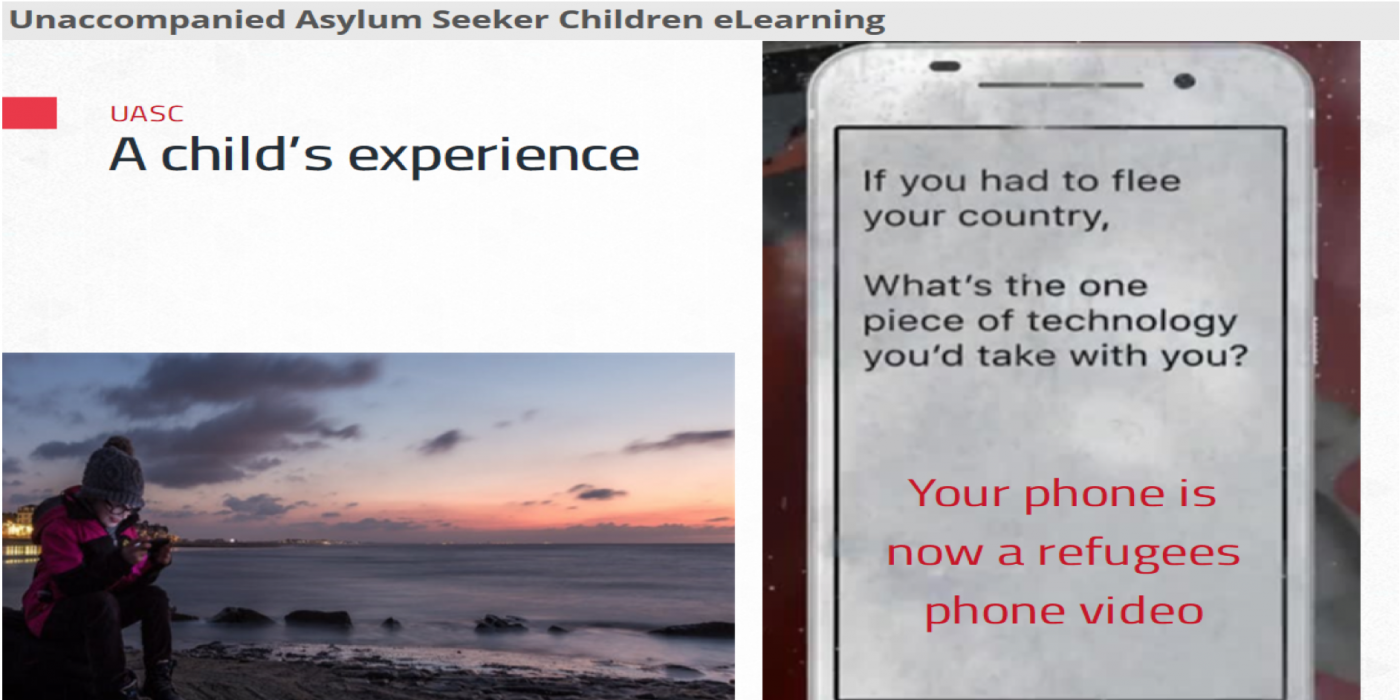Jane Townsend has worked with asylum seeker children and their families in Gloucester for many years. In this post she describes an initiative that she set up with the county council to help social workers, schools and foster carers understand the needs of unaccompanied asylum seeker children and to help give them the best start possible in their new country.

Gloucestershire County Council, like other counties in the United Kingdom, has pledged to welcome, help and support refugees and asylum seekers arriving in local communities.
Young asylum seekers who arrive in Gloucestershire with no family or adult care-giver are initially placed in the care of the Local Authority and subsequently housed with foster carer families across the county. Once settled, the next and probably most important step for that young person is to find a good school in the local area. It is important that the school can support ongoing English language acquisition, offer inclusion and a sense of belonging and equip these young people with the learning required to help them achieve their potential, and to find a place within their new community and country.
The Virtual School, Gloucestershire oversees the needs of all Children in Care across the County. It recently commissioned “FamChat” e-Learning and me to work together to produce an eLearning course to support foster carers, schools and social workers in their work with young unaccompanied asylum seeker children.
The e-Learning course we designed demystifies work with young asylum seekers and raises awareness that good inclusive practices and empathy about the experiences these young people have been through. It goes a very long way in supporting their needs. The eLearning is designed to be undertaken individually or in small groups and takes approximately 90 minutes to complete. Once the “Thought Log” is filled in, participants can print out a certificate as confirmation they have undertaken the e-Learning course.

The eLearning is fully interactive, with a fantastic selection of video and audio clips for participants to work through. There are exercises looking at many different aspects of support, including developing your establishment’s responses to a hierarchy of needs for young asylum seekers, an exercise on what an inclusive school could look like to a lay person, a view of a young asylum seeker’s journey as seen through the lens of a mobile phone, to name just a few. There is also a wealth of guidance on what post-traumatic stress disorder is and where to get help from professional for this, schools’ duty to undertake Prevent training and links to the School of Sanctuary scheme and links to organisation like NALDIC and many other helpful organisations.

The Initial feedback indicates the aims and objectives of the e-Learning have been achieved. One recent tester commented – “This should be statutory for all schools!” The eLearning is currently being evaluated by beta testers and is due for first release to all senior school Designated Teachers in Gloucestershire in July of this year.
It is hoped that the e-Learning will initially provide support and give confidence to all those who are starting to work, or are already working with, young unaccompanied asylum seekers who arrive in Gloucestershire and, who knows, maybe beyond!

For more information about The Virtual School and FamChat e-Learning you can contact Jane using the contact information in the picture above.

EALJournal.org is a publication of NALDIC, the subject association for EAL. Visit www.naldic.org.uk to become a member.


